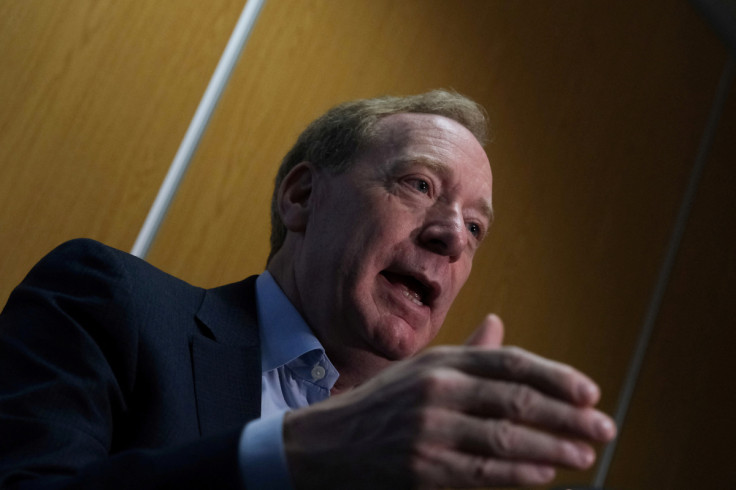
Microsoft President Brad Smith recently met with China's Minister of Commerce Wang Wentao to discuss important topics including artificial intelligence (AI), economic cooperation and trade relations between Washington and Beijing.
According to a CNBC report, key details about this meeting are mentioned in a Chinese government announcement, which has been translated using the Chinese search engine Youdao.
It is no secret that US-based companies have had a complicated relationship with China. For instance, the Chinese government has banned Google and Meta, while Apple has a strong presence in the region.
Also, the Redmond-based tech giant has previously accused Chinese hackers of breaching the email accounts of several US government agencies. In contrast to these adverse events, the meeting suggests China is still favourable to American businesses despite the ongoing tensions with the US.
The meeting between Smith and Wang comes just days after US President Joe Biden met Chinese President Xi Jinping. Some commentators believed this meeting was a major sign that China and the US want to cooperate in areas with potential.
What did Microsoft discuss with the Chinese government?
The gesture also underscores both the US and China's willingness to improve the environment for foreign businesses. During the meeting, Wang noted that China will spare no effort to provide better services for foreign enterprises, according to a statement from the country's commerce ministry.
According to the readout, the Ministry of Commerce is hoping that Microsoft will play a "constructive role" in cooperation on AI between China and the US. This doesn't come as a surprise given that Microsoft is considered one of the top players in AI, especially since it has invested a lot of money in ChatGPT developer OpenAI.
⚠️ CHINA HOPES MICROSOFT WILL PLAY CONSTRUCTIVE ROLE IN CHINA-US COOPERATION ON AI
— PiQ (@PiQSuite) December 6, 2023
China's Commerce Minister Wang Wentao met with Microsoft President Brad Smith on Wednesday, and exchanged views on Microsoft's development in China, Sino-US economic and trade relations and other… pic.twitter.com/hSqaz8LdLo
Meanwhile, Chinese tech behemoths including Alibaba, Tencent and Baidu have been launching their own AI-backed chatbots and rival products in a bid to give ChatGPT a run for its money. In fact, Baidu claims the newest version of its Ernie Bot is as good as ChatGPT-4.
It is safe to say that technology has been the basis of a disagreement between the US and China over the past few years. In fact, the US government has restricted China's access to much-needed technologies like semiconductors.
In October, Washington curbed the export of more AI chips including the Nvidia H800 to China. It is worth noting that these chips are used to train artificial intelligence models.
During their meeting, both Biden and Xi Jinping "affirmed the need to address the risks of advanced AI systems and improve AI safety through U.S.-China government talks," according to a White House readout.
It looks like Smith and Wang's meeting is a major step forward in this direction. Regrettably, there aren't enough US-based tech firms operating in the world's second-largest economy. However, that could change soon.
This year, Apple CEO Tim Cook visited China, which is the iPhone maker's third-largest market. Likewise, Tesla CEO Elon Musk made a trip to China as well. To those unaware, China houses one of Tesla's biggest factories.
Smith said that Microsoft is willing to "actively participate in the digital transformation of China's economy" and continue promoting economic and trade cooperation between the two nations, according to the Chinese Ministry of Commerce.







